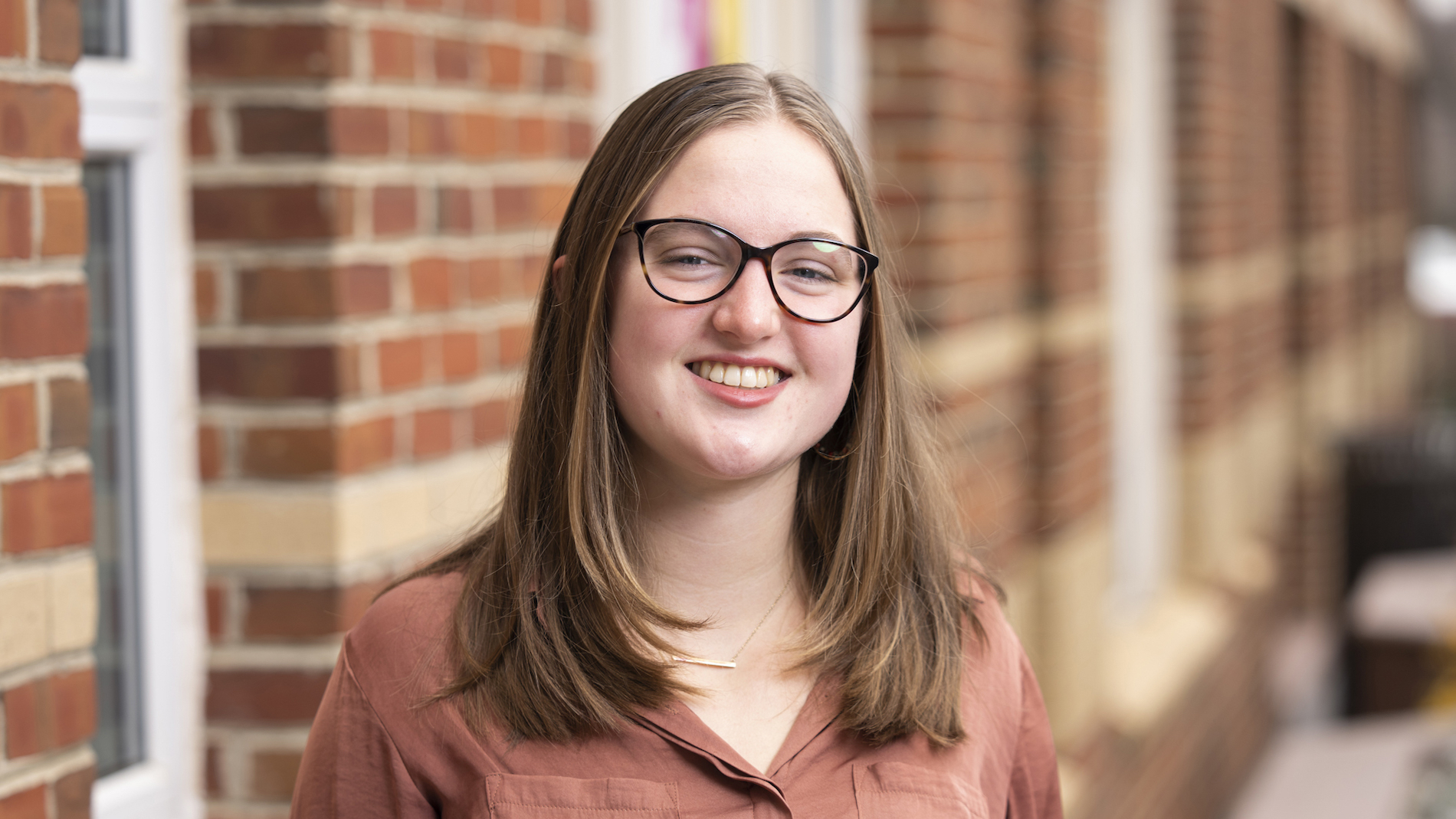Creating Community Connections
December 15, 2021

During her years at UMD, graduating senior Erin Namovicz ’21, a double major in Spanish and criminology and criminal justice, took her language skills and interest in law to the local community.
By Jessica Weiss ’05
Balancing a full course load with a job, internship and volunteer work is no easy feat. But over the past three-and-a-half years, Erin Namovicz ’21 didn’t just manage it all—she found ways to make a tangible impact in the local community through a number of positions in the legal field.
The senior, a double major in Spanish and criminology and criminal justice, was recently named a 2021 Senior Scholar by the College of Arts and Humanities for her academic achievement, outstanding leadership skills and community involvement. Namovicz will graduate next week with plans to work as a paralegal, apply to law school and eventually become a bilingual lawyer.
“Given the amount of people who speak Spanish, I realize my background and skills put me in a position to really work with people who need help,” she said.
Namovicz first became interested in the criminal justice system while a tenth grader at Montgomery Blair High School in Silver Spring, Maryland, when she and two fellow students produced a documentary about juvenile justice. “Wasted Lives: A Childhood Behind Bars” was awarded second-prize in the high school east division in C-SPAN Classroom's StudentCam documentary contest. More importantly, the project set Namovicz on a path to think about “what a system would look like that rehabilitates people versus simply punishing them.”
Once in college, Namovicz found a criminal justice and criminology major would allow her to continue to explore that question. She added a Spanish major second semester to keep up a passion for language that also developed in high school. And she began to jump at opportunities to combine her skills outside the classroom.
By the end of freshman year, she had a job as a part-time ESL teacher at the Latin American Youth Center’s Maryland Multicultural Youth Center in nearby Riverdale—a position which she held until this year. During sophomore year, she landed an internship at the Maryland Office of the Public Defender in Upper Marlboro, where she assisted attorneys in developing defenses for clients, such as by gathering and analyzing evidence and taking statements. Throughout her junior year, she was a research intern for the Association of American Indian Affairs, a role that allowed her to conduct research on juvenile justice in Indian Country, focusing on alternatives to corrections, western and indigenous justice systems, grant funding and federal budgets and jurisdiction issues.
Meanwhile, she also worked as a volunteer at numerous legal clinics, where she put her Spanish skills into play. At the Pro Bono Resource Center of Maryland in Baltimore, an immigration clinic, she worked as a translator alongside attorneys, helping to refer people to immigration benefits and resources. At the Washington Lawyers Committee, a workers’ rights clinic, she conducted intakes for workers facing exploitation or other issues and seeking legal support. Most recently, she helped Washington, D.C. residents behind on their rent apply for COVID-19-related renter relief.
“A lot of these opportunities came from things I heard about at UMD,” she said. “The university has good connections with the community so I was able to get involved. And as a result, these years really changed my life and my plans.”
Namovicz credits her classes in both majors with giving her the space to step back and think through what she was experiencing on the ground. Last semester, for instance, a course called “Crime and Impunity in Latin American Fiction and Film,” taught by Ryan Long, associate professor of Spanish and Portuguese in the School of Languages, Literatures, and Cultures, allowed her to explore definitions of crime in Latin America by placing it into the context of social justice, resistant politics and U.S. hemispheric interventions into Latin America's politics, economics and culture. For that class, she wrote a paper that compared the criminal justice system in Mayan cultures in Guatemala with other indigenous justice practices she learned about through her internship.
Namovicz is also an alumna of Honors Humanities, a UMD Honors College living-learning program, as well as a former Language House participant in the Spanish language cluster.
“The humanities make you pause and think and consider the ethics of things, the human aspect of what you’re doing, and really just help you stay in touch with the things you value and the world you want to create,” she said. “They really help you make those connections in your head to have a more holistic view.”
ARHU students can benefit from “Be Worldwise. Get Worldready.,” a career initiative that blends new and reimagined course offerings, integrated academic and career advising and access to internships, alumni networking and other opportunities across the region. Learn more.
Photo by David Andrews.

